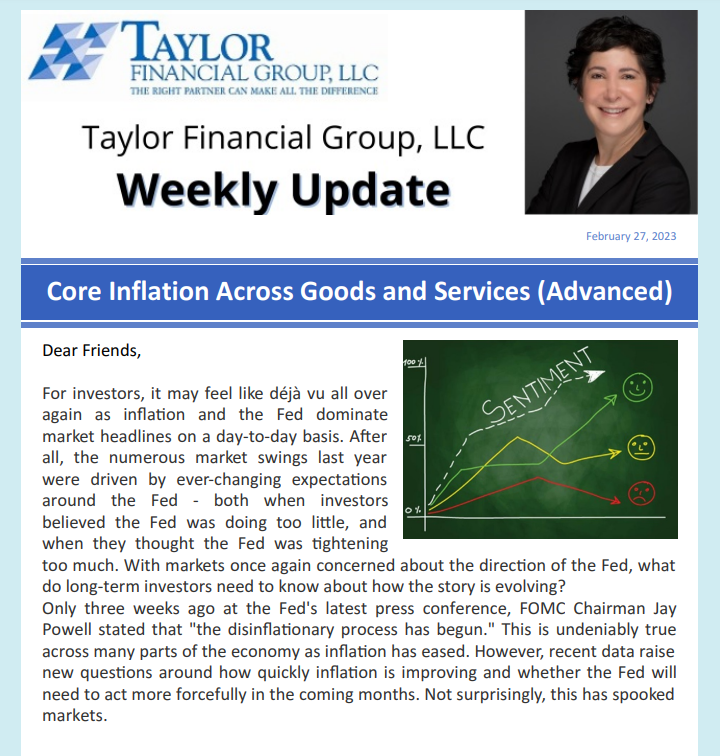By Debra Taylor, CPA/PFS, JD, CDFA™
Dear Friends,
For investors, it may feel like déjà vu all over again as inflation and the Fed dominate market headlines on a day-to-day basis. After all, the numerous market swings last year were driven by ever-changing expectations around the Fed – both when investors believed the Fed was doing too little, and when they thought the Fed was tightening too much. With markets once again concerned about the direction of the Fed, what do long-term investors need to know about how the story is evolving?
Only three weeks ago at the Fed’s latest press conference, FOMC Chairman Jay Powell stated that “the disinflationary process has begun.” This is undeniably true across many parts of the economy as inflation has eased. However, recent data raise new questions around how quickly inflation is improving and whether the Fed will need to act more forcefully in the coming months. Not surprisingly, this has spooked markets.
Goods inflation has improved but services are still a problem. The challenge facing markets and the Fed is simple: textbook economic theory says that inflation is the result of an overheating economy. Thus, in order to beat inflation, the Fed may need to slow the economy to a crawl or even cause a recession as it did in the early 1980s. While it’s unclear whether a recession will occur in 2023, most forecasts suggest that the economy will be flat this year, at best. This is the case despite a historically strong job market with unemployment of only 3.4%. Thus, the conundrum is whether the Fed will need to break the job market to beat inflation.
There are many ways economists slice and dice inflation data to best understand the underlying trends. One common way is to compare overall inflation, also known as “headline” inflation, to inflation without food and energy prices, also known as “core” inflation. This is not because food and energy are unimportant to consumers but because these prices tend to bounce around as commodity prices fluctuate, making it difficult to understand the trajectory of inflation. Recent data show that headline inflation has been decelerating – hence, Powell’s disinflationary comment -but core inflation remains stubbornly high.
The bottom line? Headline inflation has improved since it peaked last June but core inflation, and services in particular, remain a challenge. The Fed will need to walk the line between fighting inflation and maintaining economic growth. Long-term investors should stay the course and not react to the inevitable market swings.
As always, please reach out with any questions.
Debbie


